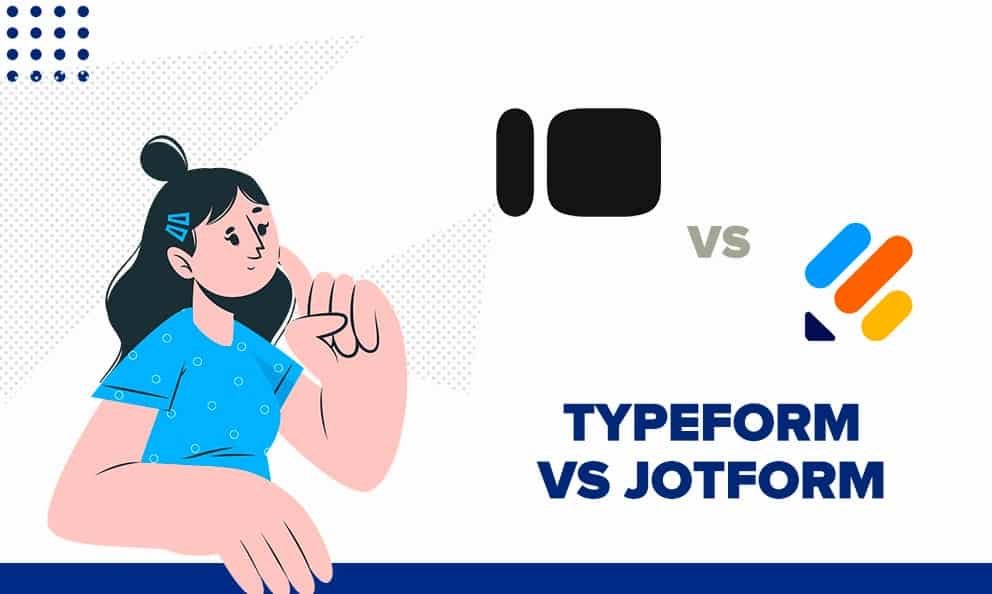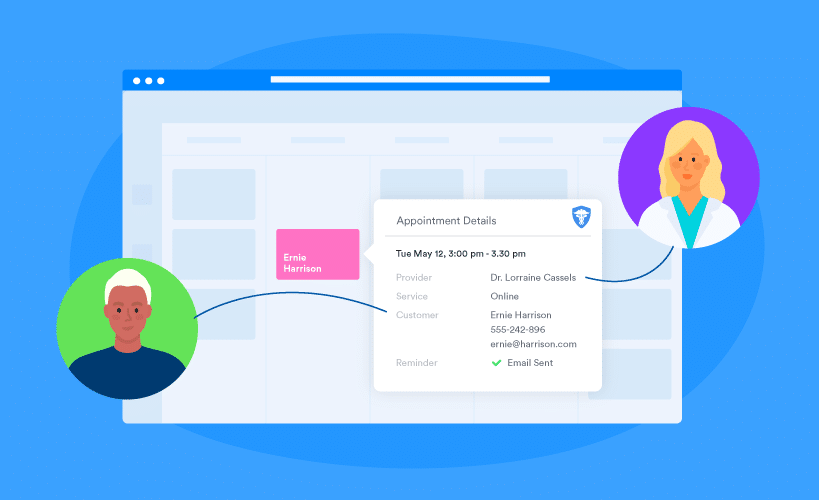Marketing Automation Software is revolutionizing how businesses operate. It simplifies marketing tasks, saving time and resources.
In today’s fast-paced digital world, managing multiple marketing channels manually can be overwhelming. Marketing automation software solves this issue. It helps streamline repetitive tasks such as email campaigns, social media posts, and ad management. This software allows businesses to focus more on strategy and creativity.
Companies can better target their audience, resulting in higher engagement and conversions. With the right marketing automation tools, businesses can efficiently nurture leads, track customer behavior, and generate insightful reports. This leads to smarter decisions and better results. Stay tuned as we explore the key features and benefits of marketing automation software in this blog post.
Introduction To Marketing Automation
Marketing automation is a game-changer for businesses. It simplifies marketing tasks, making them more efficient and personalized. This tool isn’t just a luxury anymore; it’s a necessity for modern businesses.
What Is Marketing Automation?
Marketing automation uses software to manage marketing tasks and processes. These can range from email campaigns to social media posting. It saves time and ensures consistency in your marketing efforts.
Imagine sending personalized emails to thousands of subscribers with just a few clicks. That’s the power of marketing automation. It can also help segment your audience, ensuring the right message reaches the right person.
Importance In Modern Business
In today’s fast-paced business world, time is money. Marketing automation saves you time by streamlining repetitive tasks. This allows your team to focus on more strategic initiatives.
It also improves customer experience. By delivering personalized content, you can engage your audience more effectively. This leads to higher conversion rates and customer satisfaction.
Think about your last online purchase. Did you receive a follow-up email recommending similar products? That’s marketing automation at work. It keeps your brand in the minds of your customers, increasing the likelihood of repeat business.
Have you ever wondered how some companies always seem to know what you want? That’s the magic of marketing automation. It’s not just about making your life easier; it’s about making your marketing smarter. How are you leveraging this tool in your business?
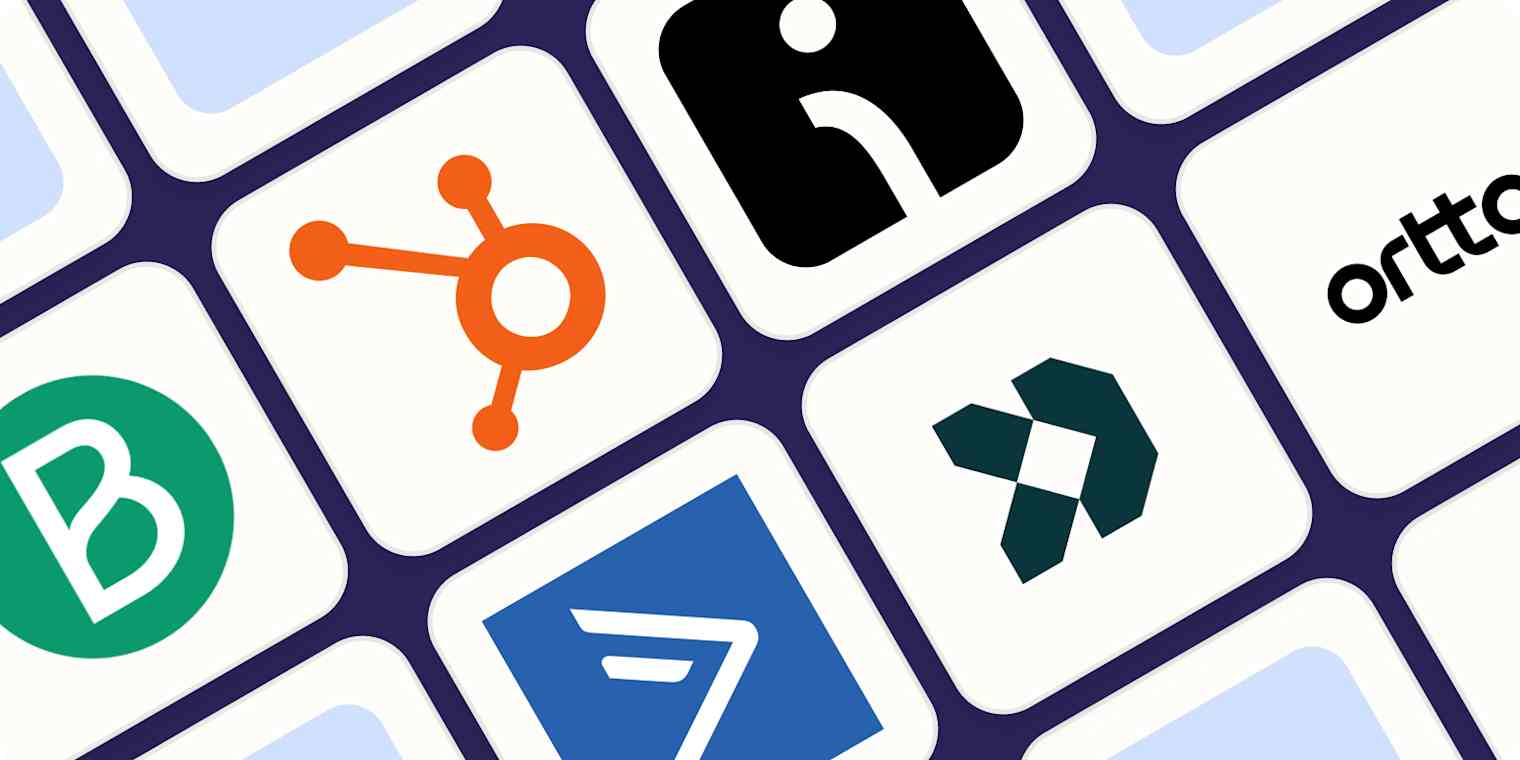
Credit: zapier.com
Key Features Of Marketing Automation Software
Marketing automation software has become a game-changer for businesses looking to streamline their marketing efforts. By automating repetitive tasks, you can focus on crafting creative strategies that truly engage your audience. But what are the key features that make this software so essential?
Lead Nurturing
Lead nurturing is crucial in turning prospects into loyal customers. Marketing automation software helps you personalize emails, schedule follow-ups, and track interactions with potential customers. Imagine sending a personalized email at the perfect time without lifting a finger.
This software can score your leads based on their interactions with your brand. Higher scores often indicate more interest, helping you prioritize your efforts. You can set up automated workflows to send relevant content, ensuring leads stay engaged.
Customer Segmentation
Customer segmentation helps you target the right audience with the right message. Marketing automation software allows you to divide your audience into segments based on criteria like behavior, demographics, or buying history. This ensures your campaigns are more effective and relevant.
For instance, you can create a segment of customers who have shown interest in a specific product. Then, send them targeted emails that promote that product or offer discounts. It’s like having a tailor-made approach for each customer.
Additionally, segmentation helps in creating personalized experiences, which can significantly improve customer satisfaction and loyalty. You’ll be amazed at how much more responsive your audience becomes when they feel understood and valued.
Have you ever wondered how much more effective your marketing could be with these features? Dive into marketing automation and see the difference for yourself!
Benefits Of Implementing Marketing Automation
Marketing automation software has become a vital tool for businesses of all sizes. By automating tasks, companies can save time and resources. Let’s explore the key benefits of implementing marketing automation.
Increased Efficiency
Marketing automation handles repetitive tasks with ease. It frees up time for your team. They can focus on strategy instead of routine work. Automated emails, social media posts, and lead nurturing save countless hours. Efficiency improves, and productivity soars.
Improved Customer Engagement
Marketing automation helps personalize communication. It tailors messages to individual preferences. Customers receive relevant content at the right time. This boosts engagement and builds loyalty. Automated workflows can follow up on leads promptly. No more missed opportunities.
Top Marketing Automation Tools
When it comes to enhancing your marketing efforts, choosing the right automation tools can make a huge difference. There are several top-notch marketing automation platforms available that can streamline your campaigns, improve customer engagement, and boost your ROI. Let’s dive into some of the most popular platforms and compare their features.
Popular Platforms
Several marketing automation tools have emerged as leaders in the industry. Here are a few that stand out:
- HubSpot: Known for its robust features and user-friendly interface, HubSpot is popular among small to medium-sized businesses. It offers tools for email marketing, social media management, and lead nurturing.
- Marketo: Ideal for large enterprises, Marketo provides advanced analytics and personalized marketing solutions. It excels in complex campaign management and automation.
- ActiveCampaign: This platform combines email marketing, automation, and CRM into one. It’s perfect for businesses looking to integrate their marketing and sales efforts seamlessly.
- Pardot: Owned by Salesforce, Pardot is tailored for B2B marketing. It offers powerful lead scoring and detailed analytics to help businesses refine their strategies.
- Mailchimp: Initially known for email marketing, Mailchimp has evolved into a comprehensive marketing automation tool. It’s great for beginners due to its simplicity and affordability.
Features Comparison
Choosing the right tool depends on your specific needs. Here’s a comparison of the features offered by these platforms:
| Feature | HubSpot | Marketo | ActiveCampaign | Pardot | Mailchimp |
|---|---|---|---|---|---|
| Email Marketing | ✔️ | ✔️ | ✔️ | ✔️ | ✔️ |
| Social Media Management | ✔️ | ✔️ | ✔️ | ❌ | ✔️ |
| CRM Integration | ✔️ | ✔️ | ✔️ | ✔️ | ✔️ |
| Lead Scoring | ✔️ | ✔️ | ✔️ | ✔️ | ❌ |
| Analytics | ✔️ | ✔️ | ✔️ | ✔️ | ✔️ |
Each platform has its strengths. HubSpot is great for beginners, while Marketo suits advanced users. ActiveCampaign offers a blend of CRM and marketing, and Pardot excels in B2B marketing.
Mailchimp is simple yet effective for those just starting. Think about your business needs and budget when choosing a tool. Which features are most important to you? The right choice can significantly impact your marketing success.
Steps To Implement Marketing Automation
Implementing marketing automation software can streamline your marketing efforts. This process requires careful planning and execution. Below are the essential steps to get you started on your journey. Follow these steps to maximize your marketing automation success.
Identifying Business Needs
Begin with a clear understanding of your business goals. What do you want to achieve with marketing automation? Increase leads, improve customer retention, or boost sales? Knowing your goals helps you focus on the right areas. Assess your current marketing efforts and identify gaps. This will guide your automation strategy and ensure you address critical needs.
Choosing The Right Software
Not all marketing automation tools are the same. Research different options and compare their features. Look for software that fits your business size and industry. Check if the tool integrates well with your current systems. Read reviews and get feedback from other users. A user-friendly interface can save time and reduce training costs. Choose a tool that offers good customer support. This helps resolve issues quickly and keeps your operations running smoothly.
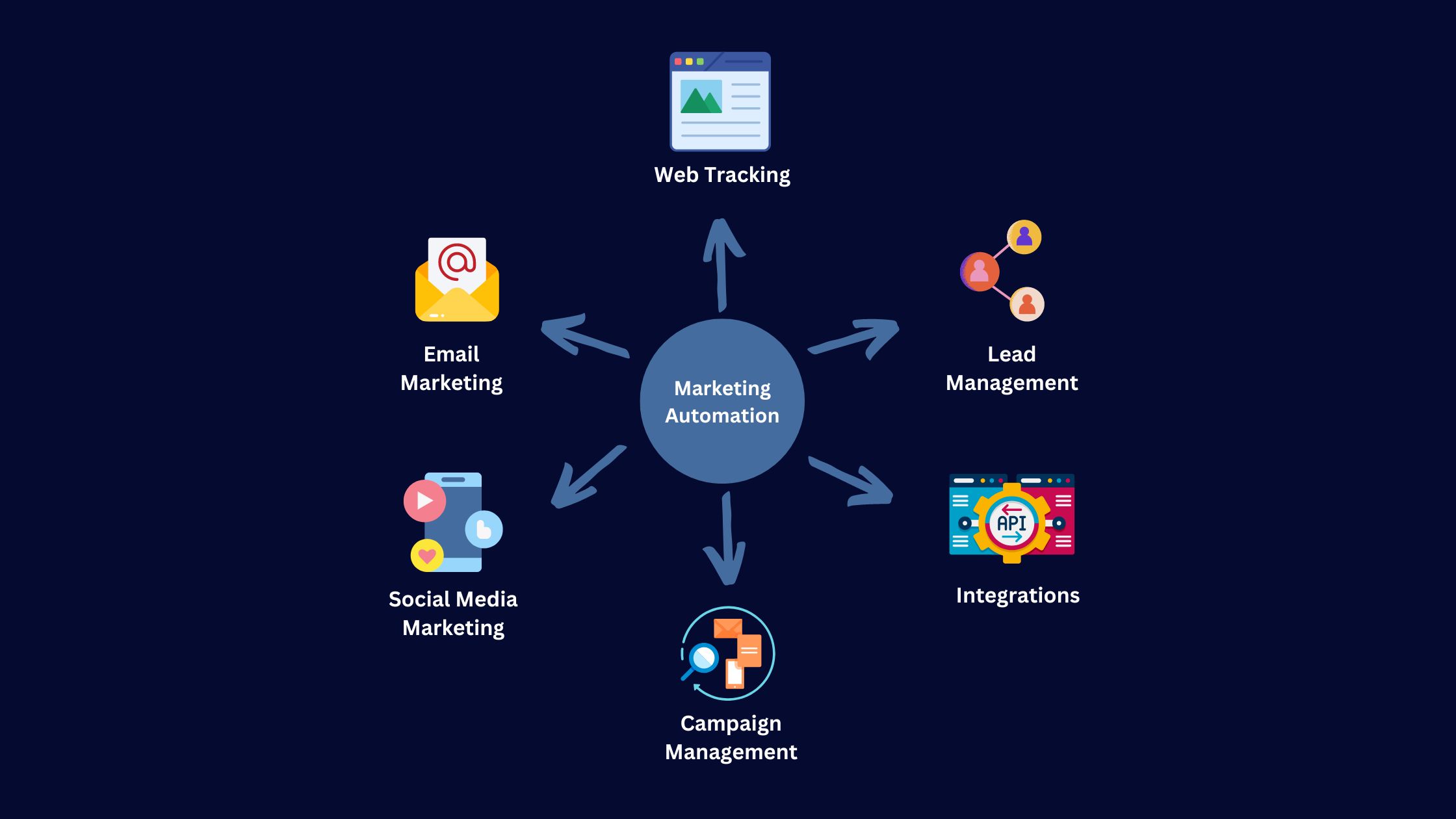
Credit: www.rolustech.com
Best Practices For Marketing Automation
Marketing automation software can simplify complex tasks. It helps you manage campaigns, track results, and personalize customer interactions. Using best practices can make your efforts more effective. In this section, learn how to use personalization strategies and manage campaigns effectively.
Personalization Strategies
Personalization creates a unique experience for each customer. Use data to understand customer behavior. Segment your audience based on interests and past interactions. Send targeted messages to each segment. Personalized emails have higher open rates. They also increase customer engagement. Use dynamic content to tailor messages. This can include names, locations, and past purchases. Make your customers feel valued.
Effective Campaign Management
Managing campaigns effectively is crucial for success. Start with clear goals. Know what you want to achieve. Plan your campaigns in advance. Use a calendar to schedule messages. Consistency is key. Track your results regularly. Analyze what works and what does not. Adjust your strategy based on data. Automate repetitive tasks. Save time and reduce errors. Test different approaches. Find what resonates with your audience. Effective campaign management leads to better results.
Common Challenges And Solutions
Marketing automation software can streamline your marketing efforts, saving you time and resources. However, adopting this technology often comes with its own set of challenges. Let’s explore some common hurdles and how to overcome them.
Overcoming Implementation Hurdles
Implementing new software can be daunting. You might face resistance from your team or struggle with the technical aspects. Start by securing buy-in from your team. Explain the benefits and how it will make their jobs easier.
Break the implementation process into smaller, manageable steps. Don’t try to do everything at once. Focus on one feature at a time and ensure everyone is comfortable using it before moving on to the next.
Offer training sessions and resources. Use webinars, tutorials, or in-person workshops to help your team get up to speed. This can make the transition smoother and less intimidating.
Ensuring Data Accuracy
Data accuracy is crucial for effective marketing automation. Inaccurate data can lead to poor targeting and wasted resources. Regularly clean your data. Remove duplicates, correct errors, and update outdated information.
Use validation tools to verify data as it enters your system. This can help catch errors early and maintain a high level of accuracy. Consistent data entry protocols can also help. Make sure everyone on your team follows the same guidelines when entering data.
Data accuracy can significantly impact your marketing efforts. How do you ensure your data remains reliable? Share your tips in the comments below!
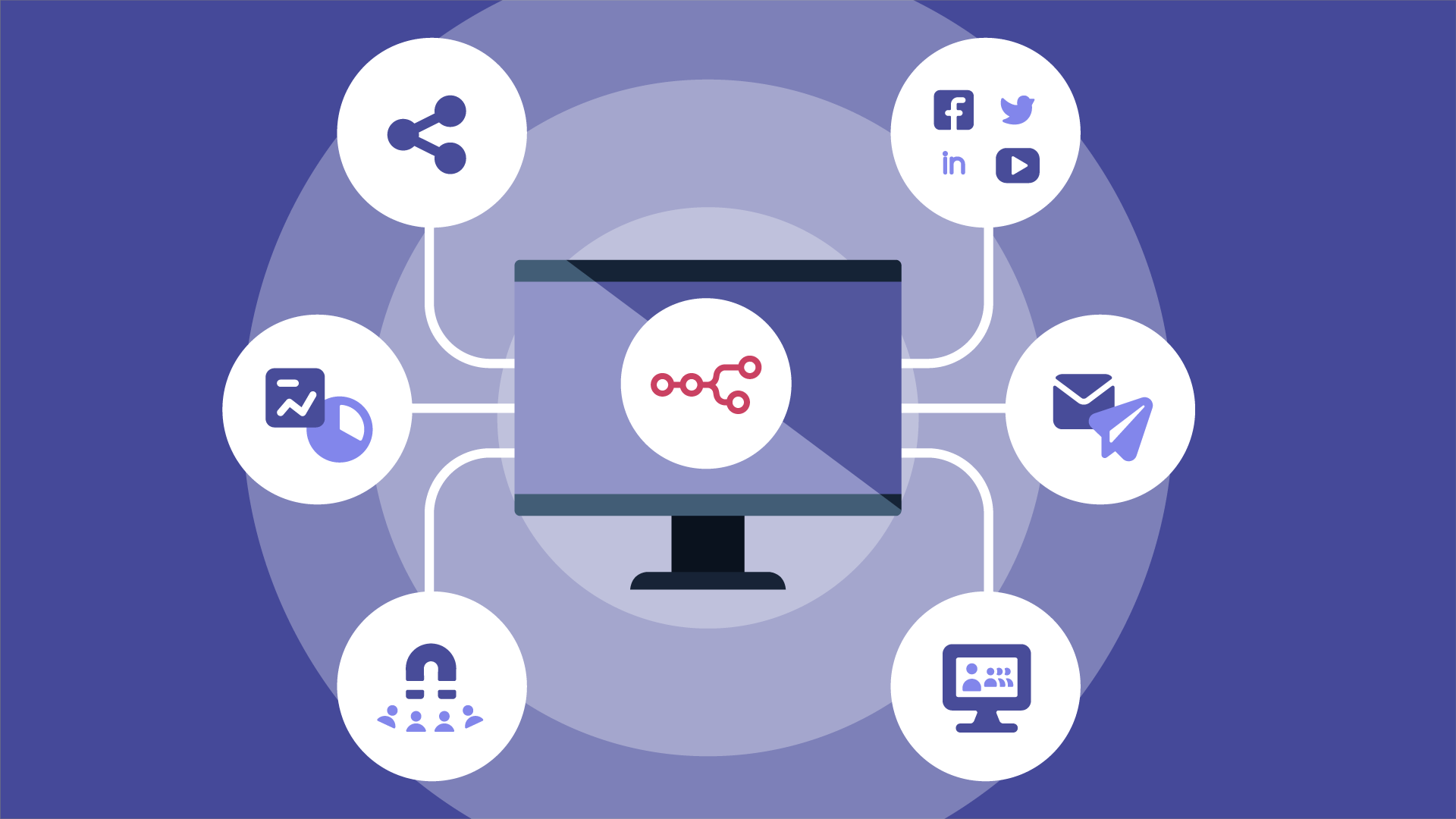
Credit: blog.n8n.io
Measuring The Success Of Marketing Automation
Measuring the success of marketing automation is crucial for any business looking to maximize its marketing efforts. By assessing performance, you can determine what works and what doesn’t, making adjustments to improve future campaigns. This section will guide you through understanding key performance indicators and analyzing campaign results to ensure you’re on the right track.
Key Performance Indicators
Key performance indicators (KPIs) are the benchmarks you use to measure the effectiveness of your marketing automation. These metrics help you understand how well your campaigns are performing.
Some essential KPIs to monitor include:
- Conversion Rate: The percentage of users who take a desired action, like signing up for a newsletter or making a purchase.
- Click-Through Rate (CTR): The ratio of users who click on a specific link to the number of total users who view a page.
- Customer Acquisition Cost (CAC): The total cost of acquiring a new customer, including all marketing expenses.
- Return on Investment (ROI): A measure of the profitability of your marketing efforts.
- Engagement Rate: The level of interaction your audience has with your content, such as likes, shares, and comments.
Tracking these KPIs regularly can help you identify trends and make data-driven decisions.
Analyzing Campaign Results
Once you’ve identified your KPIs, the next step is analyzing the results of your campaigns. This process helps you understand the impact of your marketing efforts.
Start by comparing your KPIs before and after the campaign. Look for patterns in the data. Did you see an increase in conversion rates? Did your CTR improve?
Consider using tools like Google Analytics or marketing automation software dashboards. These tools provide detailed insights into your campaign performance. For example, if you notice a spike in engagement after a particular email, analyze what made that email special.
Also, segment your data. Break it down by demographics, behaviors, and other relevant factors. This can reveal who your most responsive audiences are and help you tailor future campaigns to their preferences.
Finally, ask yourself: What can I learn from these results? Use the insights gained to refine your strategies. Marketing is an ongoing process, and continual improvement is key to long-term success.
Have you ever been surprised by the results of a marketing campaign? Sometimes, what you expect isn’t what happens. That’s why measuring and analyzing are so important.
Future Trends In Marketing Automation
Marketing automation software is evolving rapidly. New technologies are emerging that promise to make marketing more efficient and personalized. How will these changes impact your business?
Ai And Machine Learning
Artificial Intelligence (AI) and Machine Learning (ML) are transforming marketing automation. AI can analyze vast amounts of data quickly, identifying trends and patterns that humans might miss. This allows for more targeted and effective campaigns.
Imagine your software learning from each interaction with your customers. It can predict what they want even before they know it. This means better user experiences and higher conversion rates.
Have you ever received a product recommendation that felt like it was made just for you? That’s AI at work. It’s getting smarter every day, making marketing more intuitive and less intrusive.
Predictive Analytics
Predictive analytics is another exciting trend. It uses historical data to forecast future outcomes. This helps marketers make informed decisions and plan strategies more effectively.
Think about the last time you planned a campaign. Did you wonder if it would succeed? Predictive analytics can give you a clearer picture. It shows you what might happen based on past data, helping you tweak your approach for better results.
Have you considered how predictive analytics could streamline your marketing efforts? It’s like having a crystal ball for your business, revealing potential challenges and opportunities before they arise.
In conclusion, keeping an eye on these trends can give you a competitive edge. How will you leverage AI, ML, and predictive analytics to improve your marketing automation strategy?
Frequently Asked Questions
What Is The Best Software For Marketing Automation?
HubSpot is widely considered the best software for marketing automation. It offers comprehensive tools for email marketing, lead nurturing, and analytics.
What Is Marketing Automation In Crm?
Marketing automation in CRM uses technology to streamline, automate, and measure marketing tasks and workflows. It improves efficiency and effectiveness.
What Is Digital Marketing Automation Software?
Digital marketing automation software automates repetitive marketing tasks. It helps businesses streamline campaigns, manage leads, and improve customer engagement efficiently.
Is Canva A Marketing Automation Tool?
No, Canva is not a marketing automation tool. It is a graphic design platform used to create visuals.
Conclusion
Marketing automation software transforms marketing efforts. It saves time, boosts efficiency, and improves results. Small tasks become automatic, freeing up valuable time. Businesses can focus on strategy and creativity. With data-driven insights, decisions are more informed. This software adapts to various needs, growing with your company.
It simplifies processes, making complex tasks manageable. Investing in marketing automation is smart. It leads to better engagement and increased ROI. Explore options and find what suits your business. Start today and see the difference.




